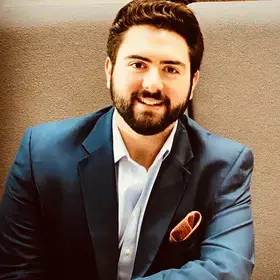U.S. Army veteran La-Verna Fountain (‘10SPS, NECR) has led a remarkable and distinguished career at Columbia—first serving in the University’s central communications office, then receiving a master’s degree in Negotiation and Conflict Resolution, and ultimately becoming vice president of strategic operations and construction business initiatives at Columbia University Facilities and Operations (CUFO), where she received Harlem Business Alliance’s Woman of Action Award for her initiatives to expand opportunities for minority, women, and local (MWL) businesses.
Fountain retired from Columbia in 2018 but remains a vital force in the University community, recently serving as a consultant in the creation and development of CUFO’s Equity and Inclusion Council.
With Veterans Day just around the corner, we spoke with Fountain about what initially inspired her interest in attending the School of Professional Studies and how her experience as a veteran has helped shape her academic career. Excerpts from the interview follow.
What first drew you to Columbia’s Negotiation and Conflict Resolution program?
Well, it’s been a lifetime of being in this position of needing to both hear and share information with opposing forces and in conflict, or just with people who didn’t see eye to eye. I’ve spent many, many years working on conflict resolution at the community level. When I look back, it truly is the space that I’ve always lived in: trying to understand other viewpoints.
Have you used the skills you learned in the program in your personal or professional life?
I will say this to anybody: The Negotiation and Conflict Resolution program at the School of Professional Studies should be mandatory. I absolutely believe everybody needs to take it. If you don’t want to get the master’s, take a couple of the courses, because it’s very much about how you relate to other people, how you hear other people, and how you can begin to look at yourself to become the best that you can be in your lifetime journey.
Can you share a bit about your work in the Construction Administration program?
First of all, I came in not knowing anything about construction. Is the building safe? And if it looks nice, that's great, too. That's what I understood about construction—that it meets the needs of the university. But to ensure that it did not destroy the community was also important to me. So to be able to help identify minority, women, and locally owned businesses and employees and get them work on the campus was huge.
Anyone in the construction industry should consider the School of Professional Studies Construction Administration program. I am fortunate to know many people who have graduated from this program and are making their mark on the construction industry throughout the world. I am in awe of the people I encounter who are brilliant thinkers and focused on creating a better world through their contributions in the construction field.
Do you feel that your experience as a veteran has informed your academic career?
I was a young girl from the country, and I didn’t know nothing about anything, but the Army helped me recognize I have a responsibility to do my best no matter what. I remember going through basic training, and I was not athletic, and yet there were people who came alongside me to make sure I succeeded. And it really didn’t matter what color you were, what your gender was. None of that was an issue. The issue was: We have to be in this together, and we have to have each other’s back.
When I went to work, if I saw someone work in a certain way, I’d go up to them and I’d ask, “Are you a vet?” Because they were carrying something that was a little bit extra. And sometimes I was right and sometimes I was wrong, but I would look at them and I’d say, “But you’ve got the vet gene.” It’s an amazing thing to see that level of commitment.
Is there a strong veteran community at Columbia today?
When I was working full-time at Columbia, there wasn’t a large veteran community. But it’s there now, and I’m so glad it is. I’ve had the privilege of helping to create and develop the Equity and Inclusion Council at Facilities, and for Veterans Day this month we’re going to have 10 representatives from the council at the ball that’s sponsored by Columbia School of General Studies. And to reach out to veterans within Facilities and say “We would like you to represent this department at the military ball” is a huge deal. I’m so proud of what Columbia is doing.
The Columbia University School of Professional Studies is a proud participant of the U.S. Department of Veterans Affairs Yellow Ribbon Program. The scope of benefits provided by the Post 9/11 GI Bill® and the Yellow Ribbon Program helps make a traditional Columbia education accessible to eligible veterans, regardless of socioeconomic status, who wish to pursue a rigorous graduate degree program. Learn more about veterans’ resources here.
About the Construction Administration Program
Columbia’s Master of Science in Construction Administration program prepares graduates for a variety of careers at the forefront of construction and project leadership. Graduates develop rewarding careers with some of the world's most respected architecture, engineering, and construction firms, entrusted with delivering some of the most impactful projects of our time.
About the Negotiation and Conflict Resolution Program
Columbia's Master of Science in Negotiation and Conflict Resolution prepares students to analyze the root causes and dynamics of conflict and to transform disputes through reasoned and resourceful interventions. With courses led by some of the world’s premier scholar-practitioners in negotiation and conflict resolution, the program focuses on developing self-awareness, tenacity, and interpersonal competency; building common ground; opening lines of communication; ensuring representation and recognition; and building sustainable possibilities for resolution.
GI Bill® is a registered trademark of the U.S. Department of Veterans Affairs (VA). More information about education benefits offered by VA is available at the official U.S. government Web site at http://www.benefits.va.gov/gibill.


